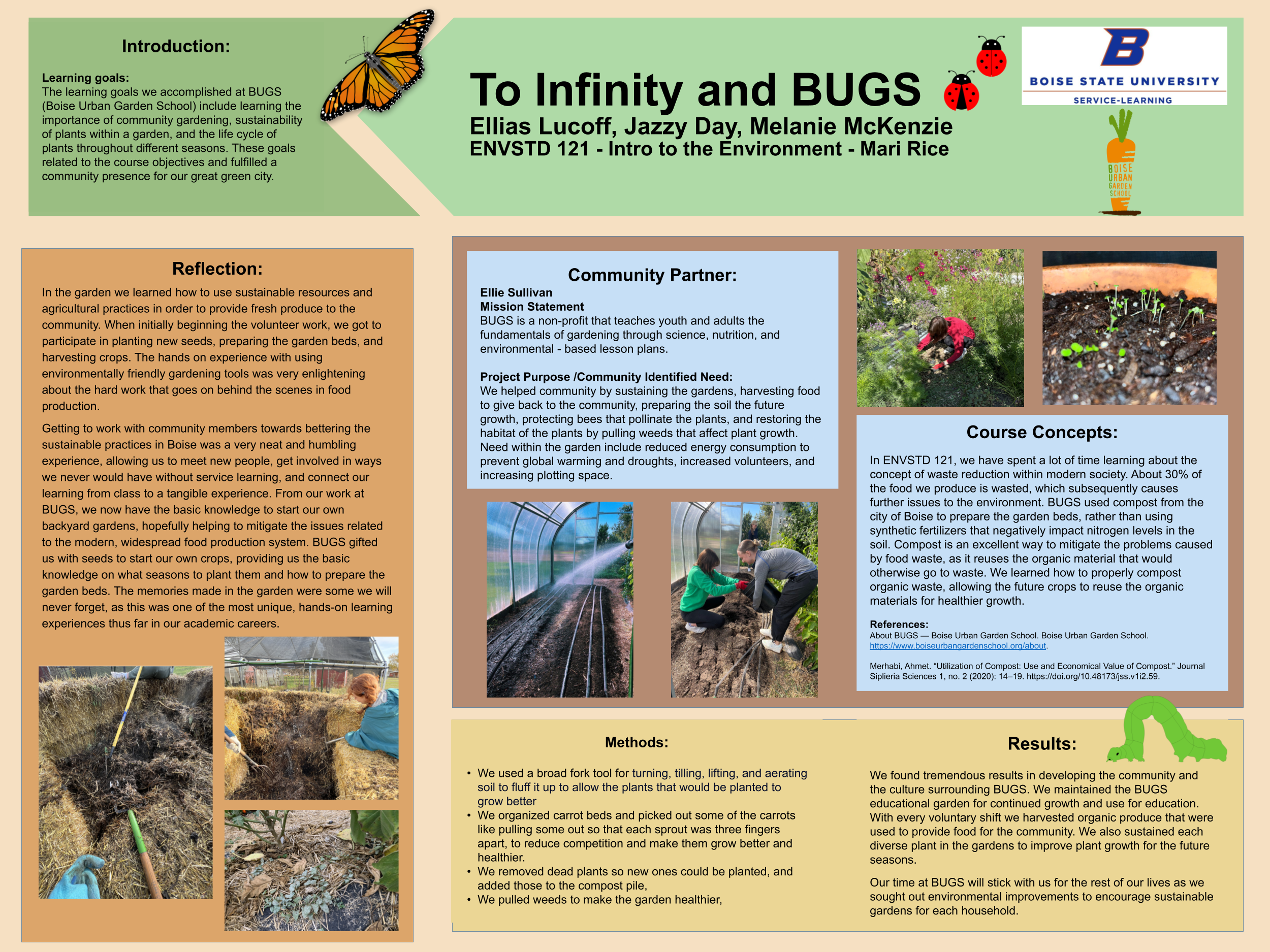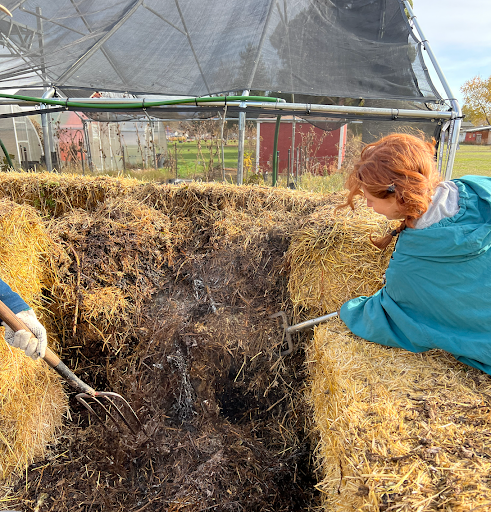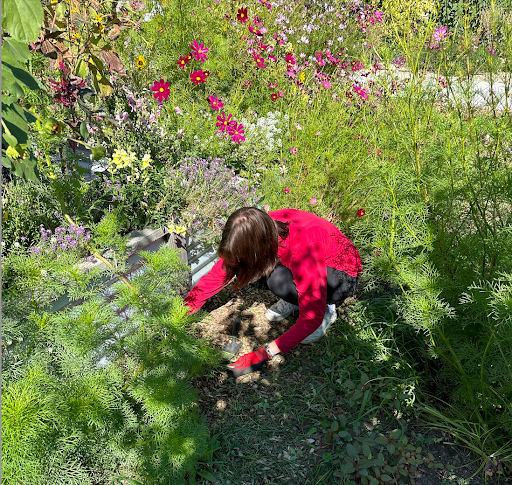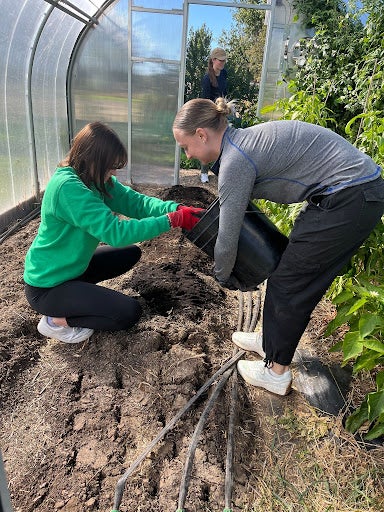Ellias Lucoff, Jazzy Day, Melanie McKenzie
Mari Rice – ENVSTD 121
Boise Urban Garden School

Introduction
Learning Goals:
The learning goals we accomplished at BUGS (Boise Urban Garden School) include learning the importance of community gardening, sustainability of plants within a garden, and the life cycle of plants throughout different seasons. These goals related to the course objectives and fulfilled a community presence for our great green city.
Reflection
In the garden we learned how to use sustainable resources and agricultural practices in order to provide fresh produce to the community. When initially beginning the volunteer work, we got to participate in planting new seeds, preparing the garden beds, and harvesting crops. The hands on experience with using environmentally friendly gardening tools was very enlightening about the hard work that goes on behind the scenes in food production.

Getting to work with community members towards bettering the sustainable practices in Boise was a very neat and humbling experience, allowing us to meet new people, get involved in ways we never would have without service learning, and connect our learning from class to a tangible experience. From our work at BUGS, we now have the basic knowledge to start our own backyard gardens, hopefully helping to mitigate the issues related to the modern, widespread food production system. BUGS gifted us with seeds to
start our own crops, providing us the basic knowledge on what seasons to plant them and how to prepare the garden beds. The memories made in the garden were some we will never forget, as this was one of the most unique, hands-on learning experiences thus far in our academic careers.
Community Partner: Boise Urban Garden School
Mission Statement:
BUGS is a non-profit that teaches youth and adults the fundamentals of gardening through science, nutrition, and environmental – based lesson plans.

Project Purpose/Community Identified Need:
We helped community by sustaining the gardens, harvesting food to give back to the community, preparing the soil the future growth, protecting bees that pollinate the plants, and restoring the habitat of the plants by pulling weeds that affect plant growth. Need within the garden include reduced energy consumption to prevent global warming and droughts, increased volunteers, and increasing plotting space.
Course Concepts
In ENVSTD 121, we have spent a lot of time learning about the concept of waste reduction within modern society. About 30% of the food we produce is wasted, which subsequently causes further issues to the environment. BUGS used compost from the city of Boise to prepare the garden beds, rather than using synthetic fertilizers that negatively impact nitrogen levels in the soil. Compost is an excellent way to mitigate the problems caused by food waste, as it reuses the organic material that would otherwise go to waste. We learned how to properly compost organic waste, allowing the future crops to reuse the organic materials for healthier growth.

Methods
- We used a broad fork tool for turning, tilling, lifting, and aerating soil to fluff it up to allow the plants that would be planted to grow better.
- We organized carrot beds and picked out some of the carrots like pulling some out so that each sprout was three fingers apart, to reduce competition and make them grow better and healthier.
- We removed dead plants so new ones could be planted, and added those to the compost pile.
- We pulled weeds to make the garden healthier.
Results
We found tremendous results in developing the community and the culture surrounding BUGS. We maintained the BUGS educational garden for continued growth and use for education. With every voluntary shift we harvested organic produce that were used to provide food for the community. We also sustained each diverse plant in the gardens to improve plant growth for the future seasons.
Our time at BUGS will stick with us for the rest of our lives as we sought out environmental improvements to encourage sustainable gardens for each household.